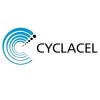
A Study of Venetoclax and Rituximab/Hyaluronidase Human in Relapsed/Refractory CLL
Chronic Lymphocytic LeukemiaThis is an open-label, multicenter, Phase II study to investigate the efficacy and safety of venetoclax in combination with Rituximab/hyaluronidase human in participants with relapsed or refractory chronic lymphocytic leukemia (CLL).

A Study of Obinutuzumab(GA101) in Combination With High-Dose Methylprednisolone(HDMP) in Chronic...
CLLWe hypothesize that GA101 - Obinutuzumab in combination with HDMP is well tolerated and will induce similar if not higher response rates than the ones observed in Rituximab plus HDMP studies (Castro et al., 2009, Castro et al., 2008).

Acalabrutinib in Combination With Anti-CD20 and Venetoclax in Relapsed/Refractory or Untreated CLL/SLL/PLL...
Chronic Lymphocytic LeukemiaSmall Lymphocytic Lymphoma1 moreTo evaluate the safety and preliminary efficacy of acalabrutinib in combination with obinutuzumab in 4 separate cohorts of participants.

Ibrutinib, Fludarabine Phosphate, Cyclophosphamide, and Obinutuzumab in Treating Patients With Chronic...
Chronic Lymphocytic LeukemiaSmall Lymphocytic LymphomaThis phase II trial studies how well ibrutinib, fludarabine phosphate, cyclophosphamide, and obinutuzumab work in treating patients with chronic lymphocytic leukemia. Ibrutinib may stop the growth of cancer cells by blocking some of the enzymes needed for cell growth. Drugs used in chemotherapy, such as fludarabine phosphate and cyclophosphamide, work in different ways to stop the growth of cancer cells, either by killing the cells, by stopping them from dividing, or by stopping them from spreading. Immunotherapy with monoclonal antibodies, such as obinutuzumab, may induce changes in the body's immune system and may interfere with the ability of tumor cells to grow and spread. Giving ibrutinib, fludarabine phosphate, cyclophosphamide, and obinutuzumab together may work better in treating chronic lymphocytic leukemia.

A Pilot Study of Metformin Therapy in Patients With Relapsed Chronic Lymphocytic Leukemia (CLL)...
Relapsed Chronic Lymphocytic LeukemiaMetformin is an antidiabetic drug which is an inexpensive and generally well tolerated medication. More recently metformin has been shown to act against carcinomas by two mechanisms: 1) an indirect, insulin-dependent mechanism which sensitizes tissues to insulin, inhibits hepatic gluconeogenesis, and stimulates uptake of glucose in muscle, thereby reducing fasting blood glucose and circulating levels of insulin, lowering the pro survival activity of the insulin/INSR axis, and 2) a direct, insulin-independent mechanism which activates the AMP-activated protein kinase (AMPK) pathway and leads to inhibition of the mTOR pathway. Given the investigators preliminary published data on insulin and mTOR inhibition[1] metformin is an attractive candidate for a pilot clinical trial in CLL patients.

PCI-32765 (Ibrutinib) in Treating Patients With Relapsed or Refractory Chronic Lymphocytic Leukemia,...
Prolymphocytic LeukemiaRecurrent Small Lymphocytic Lymphoma1 moreThis is a Phase II, single institution open-label, non-randomized monotherapy study to evaluate the clinical efficacy and durable disease control of PCI-32765 administered to patients with relapsed/refractory CLL/SLL/PLL of all risk categories with patients having deletion 17p13 independently evaluated.

Romidepsin in Treating Patients With Lymphoma, Chronic Lymphocytic Leukemia, or Solid Tumors With...
GliomaHematopoietic and Lymphoid Cell Neoplasm48 moreThis phase I trial studies the side effects and best dose of romidepsin in treating patients with lymphoma, chronic lymphocytic leukemia, or solid tumors with liver dysfunction. Romidepsin may stop the growth of cancer cells by entering the cancer cells and by blocking the activity of proteins that are important for the cancer's growth and survival.

TLR9 Agonist SD-101, Anti-OX40 Antibody BMS 986178, and Radiation Therapy in Treating Patients With...
B-Cell Non-Hodgkin LymphomaGrade 1 Follicular Lymphoma6 moreThis phase I trial studies the side effects and best dose of the anti-OX40 antibody BMS-986178 when given together with the TLR9 agonist SD-101 and radiation therapy in treating patients with low-grade B-cell Non-Hodgkin lymphomas. TLR9 agonist SD-101 may stimulate the immune system in different ways and stop cancer cells from growing. Anti-OX40 antibody is a monoclonal antibody that enhances the activation of T cells, immune cells that are important for fighting tumors Radiation therapy uses high energy x-rays to kill cancer cells and may make them more easily detected by the immune system. Giving TLR9 agonist SD-101 together with anti-OX40 antibody BMS 986178 and radiation therapy may work better in treating patients with low-grade B-cell non-hodgkin lymphomas.

Serial Measurements of Molecular and Architectural Responses to Therapy (SMMART) PRIME Trial
Accelerated Phase Chronic Myelogenous LeukemiaBCR-ABL1 Positive55 moreThis phase Ib trial determines if samples from a patient's cancer can be tested to find combinations of drugs that provide clinical benefit for the kind of cancer the patient has. This study is also being done to understand why cancer drugs can stop working and how different cancers in different people respond to different types of therapy.

CYC065 CDK Inhibitor and Venetoclax Study in Relapsed/Refractory CLL
Relapsed or Refractory Chronic Lymphocytic LeukemiaA Phase I Combination Study of CYC065 and Venetoclax for Relapsed or Refractory Chronic Lymphocytic Leukemia (CLL)
